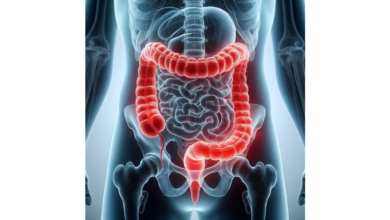The Hidden Health Risks of Fast Food Exposed

The Hidden Health Risks of Fast Food Exposed – Fast food has become an integral part of our daily lives. Whether you’re a busy professional grabbing a quick lunch or a parent looking to appease the kids after a long day, the allure of fast food is undeniable. . Many have experienced the immediate, yet temporary satisfaction that fast food provides, quickly followed by a sense of regret. This cycle of consumption can have long-lasting effects on your overall health. When you indulge in fast food, you may unknowingly subject your body to a host of harmful ingredients. Consider these hidden dangers:
- High Sodium Levels: Most fast-food items are laden with sodium, which can lead to hypertension and heart disease.
- Hidden Sugars: Many people are surprised to learn how much sugar is packed into sauces and drinks, contributing to weight gain and increased cravings.
- Trans Fats: Common in fried foods, trans fats can significantly raise your cholesterol levels, elevating your risk for cardiovascular diseases.
- Harmful Additives: Preservatives and artificial ingredients can disrupt your body’s natural functions.
High Sodium Levels in Fast Food
Health Effects of Consuming Excessive Sodium
As we continue our exploration of the hidden health risks of fast food, it’s crucial to address one of the most pressing concerns: high sodium levels. You might be surprised to learn just how much sodium is hiding in your favorite fast-food meals. A single burger can contain upwards of 1,000 milligrams of sodium—more than half the recommended daily limit!
Immediate Consequences
Think back to the last time you enjoyed a salty snack or a fast-food meal. Did you feel that instant thirst that followed? This sensation is your body’s way of signaling that something is off. Consuming excessive sodium can lead to a quick rise in blood pressure, which puts stress on your heart. Over time, this can contribute to serious health issues, such as:
- Hypertension: High blood pressure is often referred to as the “silent killer” because it may go unnoticed while wreaking havoc.
- Heart Disease: An excess of sodium can increase your risk for cardiovascular diseases, leading to heart attacks or strokes.
- Stroke Risk: Research has shown that high sodium intake is directly related to the likelihood of experiencing a stroke.
Long-term Effects
While the immediate aftermath of high sodium consumption may help you recognize the risks, the long-term effects are even more daunting. Regularly consuming high-sodium fast food can lead to:
- Kidney Damage: Overworking your kidneys can lead to chronic conditions that require medical intervention.
- Osteoporosis: A sodium-rich diet can lead to calcium depletion, affecting bone health.
To illustrate, let’s say you swing by a fast-food joint every week. If you’re consuming high-sodium meals without balancing them with healthier options, you’re setting yourself up for chronic health problems over time.
Making Informed Choices
Being informed about sodium content is essential. Here are a few tips to reduce your sodium intake when dining out:
- Choose grilled over fried: Grilled options are typically lower in sodium.
- Ask for dressings and sauces on the side: This allows you to control how much you consume.
- Opt for smaller portions: Don’t be afraid to choose a smaller size or share meals.
As we move forward in our exploration of fast food, keep sodium levels in mind. It’s a silent danger that can greatly impact your health, but by recognizing the risks and making conscious choices, you can reclaim your well-being.
Hidden Sugar Content in Fast Food
Risks of Sugar Overload
Transitioning from high sodium levels, let’s delve into another often-overlooked danger lurking in fast food: hidden sugars. You may be surprised at how much sugar is sneaked into seemingly savory meals. Have you ever noticed how some fast-food sauces can taste sweet, even if they’re not dessert items? This is a common tactic that increases flavor but comes with serious health consequences.
The Sweet Truth
Many fast-food items are packed with added sugars, and it’s all too easy to exceed the daily recommended limit without even realizing it. For instance, a typical cheeseburger might have around 6 grams of sugar, while sweetened sauces can pack an additional 10 grams! Combine this with a sugary drink, and you could be consuming your entire sugar allocation within a single meal. What can this mean for your health? Check out these potential risks:
- Weight Gain: Excessive sugar contributes to increased calorie intake, leading to unwanted weight gain. It’s easy to fall into the trap of quick energy bursts followed by fatigue, making you feel hungry again sooner.
- Insulin Resistance: Over time, high sugar intake can lead to insulin resistance, a precursor to Type 2 diabetes. This means your body struggles to process sugar, leading to elevated blood sugar levels.
- Increased Cravings: The more sugar you consume, the more you crave. This cycle can lead to a vicious pattern of consumption that’s tough to break.
- Mood Swings: High sugar intake has been linked to mood fluctuations, including irritability and fatigue. Who hasn’t experienced a sugar crash after indulging in a sweet treat?
Taming the Sweet Tooth
So, how can you keep sugar cravings in check? Here are some practical tips:
- Read Labels: Before you order, take a moment to check for hidden sugars in sauces and dressings.
- Choose wisely: Opt for items that are less likely to contain added sugars, such as salads with vinegar-based dressings instead of creamy ones.
- Limit Sugary Beverages: Swap sugary soft drinks for water or unsweetened iced tea to cut back on sugar intake.
Understanding the risks of hidden sugar content in fast food is vital for maintaining your health and wellness. The next time you find yourself reaching for that delicious meal, remember to consider not just the taste, but the hidden sugars that can follow you long after the meal is over. As we move forward, we’ll take a closer look at another danger: trans fats and their effects on your cardiovascular health.
Trans Fats in Fast Food
Negative Effects on Cardiovascular Health
As we transition from the risks of hidden sugar, it’s time to shine a light on another harmful ingredient lurking in fast food: trans fats. These are the bad boys of the fat world—often found in fried foods, baked goods, and even frozen pizzas. You might think you’re avoiding unhealthy fats by opting for fast food, but surprises abound when trans fats come into play.
What Are Trans Fats?
Trans fats are partially hydrogenated oils that manufacturers use to prolong shelf life and enhance flavor. Unfortunately, they’re also notorious for raising bad cholesterol (LDL) levels while decreasing good cholesterol (HDL). This double whammy can wreak havoc on your heart health. Consider this example: Imagine you swing by your favorite fast-food outlet for a quick snack, choosing those crispy fries because they look irresistible. What you might not see is that those fries are fried in oil containing trans fats, silently contributing to your risk of cardiovascular issues. Here’s what excessive trans fat consumption can lead to:
- Heart Disease: Studies have found a clear link between trans fat intake and heart disease. Those guilty of indulging in fast-food items high in trans fats significantly increase their chances of developing cardiovascular problems.
- Increased Inflammation: Trans fats can lead to inflammation in the body, further straining your cardiovascular system and potentially leading to heart attacks.
- Diabetes Risk: Some research suggests that trans fats can worsen insulin resistance, increasing your risk of Type 2 diabetes.
Strategies to Avoid Trans Fats
Being aware of trans fats is half the battle, but what can you do to dodge them in your future fast-food adventures? Here are some tactics:
- Read Ingredients: Always check the packaging for “partially hydrogenated oils” and avoid anything that lists them.
- Choose Healthier Options: Opt for grilled items instead of fried ones and select whole food sides like salads or fruit when available.
- Ask Questions: If you’re unsure about how food is prepared, don’t hesitate to ask. Many restaurants are now aware of customer concerns about trans fats and can provide information.
Understanding the negative effects of trans fats on cardiovascular health arms you with knowledge, empowering you to make healthier choices. Fast food may seem convenient, but opting for healthier options will always pay off in the long run. Next, we’ll explore the potential risks associated with harmful additives found in fast food and how they may affect your overall health.
Harmful Additives in Fast Food
Potential Health Risks
Continuing from our discussion on trans fats, let’s now turn our attention to another hidden danger lurking in the world of fast food: harmful additives. While they may help food remain fresh and appealing, many of these additives come with troubling health risks that can impact your well-being.
What Are Harmful Additives?
Harmful additives are substances included in food products to enhance flavor, appearance, or shelf life. While some additives are harmless, many have been scrutinized for their potential adverse effects. Common types of harmful additives found in fast food include artificial colors, preservatives, and flavor enhancers. Take, for instance, that deliciously vibrant menu item that catches your eye. Behind that eye-popping color are often artificial dyes such as Red 40 or Yellow 5, which may hold the key to certain health hazards. Here are a few potential risks associated with harmful additives:
- Allergic Reactions: Some people may experience allergies or intolerances to certain additives, including artificial colors like Tartrazine (Yellow 5), which can trigger symptoms ranging from rashes to gastrointestinal issues.
- Hyperactivity in Children: There’s ongoing research suggesting a correlation between artificial food colorings and hyperactive behavior in children, raising concerns for parents about what their kids consume.
- Long-Term Health Effects: Some preservatives, like sodium nitrites found in processed meats, have been linked to an increased risk of certain cancers and other chronic diseases when consumed regularly.
Navigating Additives in Fast Food
Being mindful of harmful additives is essential for maintaining your health. Here are some practical steps to make more informed choices when dining out:
- Be Informed: Familiarize yourself with the names of common additives and their potential effects to better understand what you’re consuming.
- Ask Questions: Don’t hesitate to ask restaurant staff about the ingredients in your food. Many places now focus on transparency.
- Choose Whole Foods: Opt for menu items that prioritize whole ingredients over processed ones—salads, grilled items, or bowls that emphasize fresh vegetables can be great alternatives.
Acknowledging the presence of harmful additives in fast food allows you to make healthier decisions that align with your overall wellness goals. With a clearer understanding of what goes into fast food, you now have the tools to navigate the fast-food landscape wisely. Next, we’ll explore the impact of fast food on obesity and its alarming relationship with weight gain.
Impact of Fast Food on Obesity
Relation to Weight Gain
Continuing from our examination of harmful additives, it’s impossible to discuss fast food without addressing its significant contribution to the obesity epidemic.The convenient, calorie-dense meals can lead to unintentional overconsumption, which can wreak havoc on your waistline.
The Fast Food Conundrum
When you reach for a fast-food burger or a large fries, it’s easy to underestimate just how many calories you’re consuming. For instance, a single meal can easily exceed 1,500 calories when adding sugary drinks and sides, which is close to or even surpasses the daily calorie needs for some people. Here’s how fast food can lead to weight gain:
- High-Calorie Options: Fast food is typically loaded with calories from fats, sugars, and refined carbohydrates, making it simple to consume more than your body can burn.
- Convenience Over Nutrition: The easy access to fast food often lures people into opting for these meals rather than preparing healthier, homemade options which usually come with better nutrition.
- Portion Sizes: Many fast food establishments have increased their portion sizes dramatically over the years. A “medium” portion today might be what was once considered a “large” portion decades ago.
- Emotional Eating: Many people turn to fast food for comfort, especially during stressful times.
Strategies for Healthier Choices
Recognizing the relationship between fast food and weight gain can help you make better choices moving forward. Here are a few strategies:
- Plan Ahead: If you know you’ll be dining out, consider checking the menu online to select healthier options beforehand.
- Mind Your Portions: Consider ordering smaller sizes, sharing meals, or opting for items that focus on vegetables and lean proteins.
- Balance and Moderation: Treat fast food as an occasional indulgence rather than a staple of your diet. Aim for a balanced intake of whole foods, fruits, and vegetables throughout the week.
Understanding the impact of fast food on obesity can pave the way for healthier lifestyle choices. By staying informed and making conscious decisions, you can combat weight gain and work towards better health.
Fast Food and Type 2 Diabetes
Connection to Insulin Resistance
As we dive deeper into the repercussions of fast food, it’s essential to connect the dots between fast food consumption and its significant role in type 2 diabetes, particularly through the lens of insulin resistance. Following our discussions about the links to obesity, it becomes clear how the fast-food lifestyle can create a sequence of health challenges.
Understanding Insulin Resistance
Insulin resistance occurs when your body’s cells become less responsive to insulin, the hormone responsible for regulating blood sugar levels. This resistance can lead to elevated blood sugar levels, increasing the risk of developing type 2 diabetes. Have you ever found yourself reaching for that quick fast-food meal after a long day? While it may provide comfort and convenience, each indulgence can ripple into long-term health consequences. Here’s how fast food contributes to insulin resistance:
- High Glycemic Index Foods: Foods high in refined carbohydrates and sugars—common in fast food—can cause spikes in blood sugar levels, forcing your body to pump out more insulin. Over time, this can wear down your body’s ability to respond to insulin.
- Poor Nutritional Quality: Fast food typically lacks the nutrients your body craves, meaning you might miss out on fiber and healthy fats that are essential for stabilizing blood sugar levels.
- Infrequent Healthy Eating Habits: The convenience of fast food may lead to a pattern of neglecting nutritious home-cooked meals, which often incorporate whole grains and fresh produce that help regulate blood sugar levels.
Strategies for Prevention
While the connection between fast food and type 2 diabetes can feel overwhelming, there are proactive steps you can take:
- Choose Whole Foods: Whenever possible, opt for whole grains and fresh foods, which can help stabilize blood sugar and enhance overall nutrition.
- Plan Your Meals: Preparing meals ahead of time can help you resist the tempting allure of fast food when you’re tired or busy.
- Read Nutrition Labels: If you must choose fast food, become vigilant about checking nutritional information for healthier options that might be available.
By understanding the connection between fast food, insulin resistance, and type 2 diabetes, you empower yourself to make more informed dietary choices. This awareness is crucial as we transition into our next topic: the impact of fast food on digestive health and the potential disruptions it can cause in your gut.
Fast Food and Digestive Issues
Digestive System Disruptions
Having explored the connection between fast food and type 2 diabetes, it’s important to turn our attention to yet another critical consequence of indulging in fast food: digestive system disruptions. Many people may not immediately associate fast food with digestive woes, but the reality is that frequent consumption can lead to a host of uncomfortable gastrointestinal issues.
Understanding Digestive Disruptions
Think back to the last time you enjoyed a greasy burger and fries. Perhaps you felt satisfied momentarily, but later on, did you experience bloating, discomfort, or even heartburn? That’s your digestive system shouting for help. Fast food is often rich in unhealthy fats, sugars, and preservatives, which can upset the natural balance your digestive tract needs to function smoothly. Here’s how fast food can disrupt your digestive system:
- High Fat Content: Foods that are fried or rich in trans fats can slow digestive processes, leading to feelings of heaviness and bloating.
- Low Fiber: Fast food typically lacks fiber, which is essential for healthy digestion. A low-fiber diet can contribute to constipation and irregular bowel movements.
- Artificial Additives: Many fast-food items contain preservatives and artificial ingredients that can irritate the digestive system, potentially leading to conditions such as gastroesophageal reflux disease (GERD).
Preventing Digestive Issues
To maintain a happier gut while navigating the fast-food landscape, consider implementing the following strategies:
- Prioritize Fiber: Whenever possible, choose items rich in fiber, like salads or whole-grain buns, to support digestion.
- Stay Hydrated: Drinking plenty of water not only helps with digestion but also can combat the dehydrating effects of salty fast food.
- Mindful Eating: Consider eating more slowly to give your body time to recognize fullness, reducing the likelihood of overeating.
- Limit Fast Food Frequency: Reducing your overall fast-food intake can lead to improvements in both your digestive health and overall well-being.
By acknowledging the digestive disruptions linked to fast food consumption, you can take proactive steps to protect your gut health. As we move forward, our focus will shift to an often-overlooked aspect of health: the impact of fast food on mental health and how your diet can influence your mood and cognitive function.
Impact of Fast Food on Mental Health
Influence on Mood and Cognitive Function
Moving on from the digestive disruptions caused by fast food, it’s essential to consider yet another critical issue: the impact of fast food on mental health. You may have already experienced the highs and lows of a fast-food meal—instant gratification followed by a sudden energy crash. But have you ever paused to think about how your food choices affect your mood and cognitive function on a broader scale?
The Connection Between Fast Food and Mental Health
Fast food is not just about the physical ramifications; it can also play a pivotal role in shaping your mental well-being. For instance, think about your typical day. If you’re fueling yourself with burgers, fries, and sugary sodas, it can create a cycle of mood swings—feeling elated after eating delicious food, only to crash shortly thereafter. This can lead to irritability, fatigue, and a lack of focus. Here are some specific ways fast food can influence mental health:
- Nutrient Deficiency: Fast food often lacks essential nutrients that support brain health, such as omega-3 fatty acids, vitamins, and minerals. A deficiency can lead to cognitive decline, affecting memory and concentration.
- Blood Sugar Spikes and Crashes: The high sugar and refined carbohydrate content in fast food can cause sudden spikes in blood sugar levels, followed by rapid declines that may lead to irritability and mood swings.
- Inflammation: Diets high in unhealthy fats and sugars can lead to inflammation, which has been linked to depression. This inflammation can negatively affect neurotransmitters—brain chemicals that regulate mood.
Steps to Improve Mental Well-Being
So how can you counteract the negative effects of fast food on your mental health? Here are a few strategies:
- Incorporate Nutrient-Rich Foods: Focus on incorporating whole foods like fruits, vegetables, nuts, and fish, which provide essential nutrients for brain function.
- Practice Mindful Eating: Instead of grabbing meals on the go, take a moment to enjoy your food, as this can improve digestion and overall satisfaction.
- Limit Fast Food Intake: Reducing the frequency of fast-food meals can lead to better mood stability and mental clarity.
Recognizing the influence of fast food on your mood and cognitive function allows you to make healthier choices that benefit not only your body but also your mind. As we conclude our exploration, we will discuss the alarming connection between fast food and increased cancer risk, shedding light on the possible carcinogenic compounds present in these convenient meals.
Fast Food and Increased Cancer Risk
Carcinogenic Compounds in Fast Food
Following our discussion on the impact of fast food on mental health, we must now confront a particularly alarming issue: the connection between fast food and increased cancer risk. Many people might not realize that the convenience of fast food can entail serious long-term health risks, including exposure to carcinogenic compounds.
What Are Carcinogenic Compounds?
Carcinogens are substances that can promote the formation of cancer. Unfortunately, many fast food items contain ingredients or additives that can have harmful effects if consumed regularly. It’s unsettling to think that your quick lunch could hold hidden dangers. Some common sources of carcinogenic compounds in fast food include:
- Processed Meats: Many fast-food chains include items like hot dogs and bacon, which are often processed with preservatives like sodium nitrite. This compound has been linked to an increased risk of colorectal cancer.
- Acrylamide: This chemical forms in starchy foods when they are fried or cooked at high temperatures. Fried potatoes and other fast-food items, such as French fries and hash browns, can contain significant amounts of acrylamide.
- Trans Fats: As we’ve previously discussed, these unhealthy fats—common in fried fast foods—are not only bad for your heart, but research has also suggested a potential connection with certain types of cancer.
Navigating Fast Food Choices
While the odds may seem stacked against health-conscious individuals, there are ways to navigate the fast-food landscape with caution. Here are some tips to reduce your exposure to carcinogenic compounds:
- Choose Grilled Over Fried: Opt for grilled items whenever possible, as they typically contain fewer harmful compounds compared to fried alternatives.
- Limit Processed Meats: If you can, avoid processed meats altogether or limit their consumption to reduce your exposure to harmful preservatives.
- Be Mindful of Cooking Methods: If dining at a fast-food establishment that offers healthier cooking methods or grilled items, it’s worth choosing those options.
Recognizing the presence of carcinogenic compounds in fast food is a crucial step in safeguarding your health. By being aware of these risks, you can empower yourself to make informed dietary choices for a healthier tomorrow. As we wrap up this discussion, remember that an informed consumer is a powerful one and that every choice counts in your journey toward better health.
You might also find this article helpful Weight Management: Tips for a Healthy Weight






One Comment